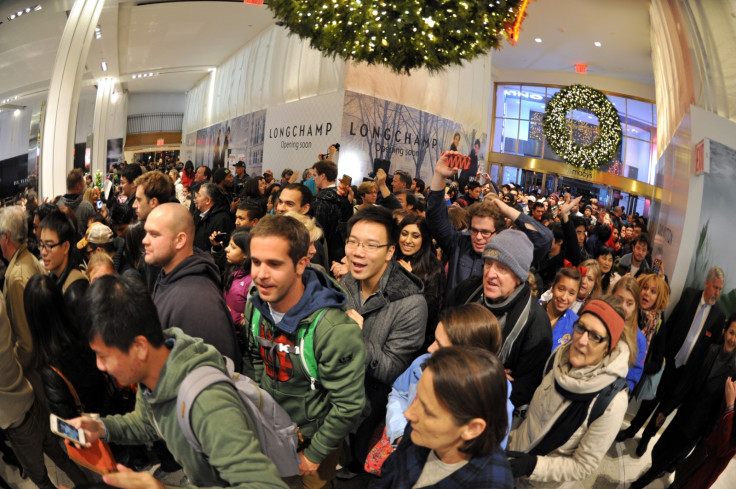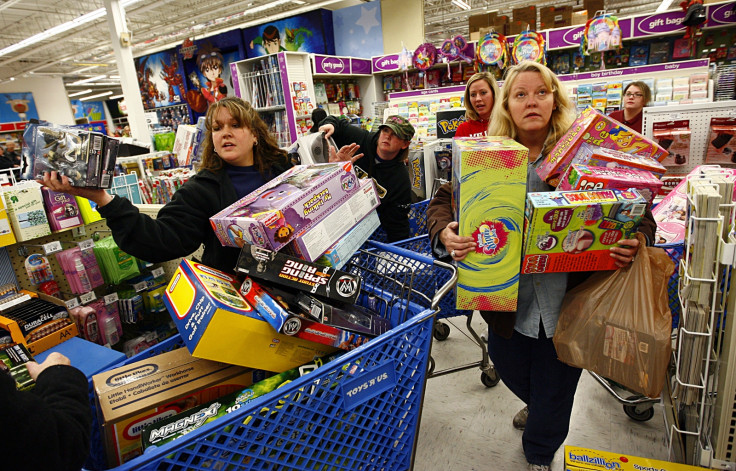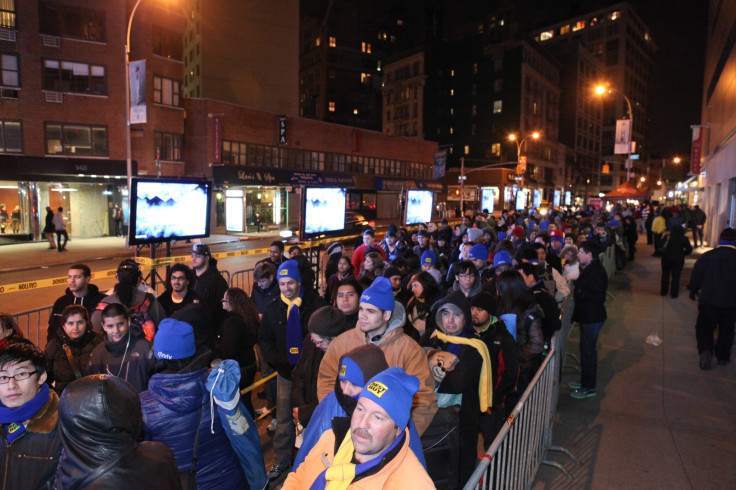Black Friday 2014: Why Shopping for Deals Makes People Go Crazy

In the UK, Black Friday used to mean the last Friday before Christmas, where everyone goes out and drinks too much – it is often referred to as Black Eye Friday, due to the alcohol-fuelled punch-ups that ensue.
Not so anymore, however, as more and more shoppers and retailers take on the US tradition of holding a one-day sale after Thanksgiving, pushing people into a spending frenzy in the hope of bagging the best deal before Christmas.
Black Friday horror tales are commonplace. In 2008 a Wal-Mart worker was killed during a stampede. There is even a website called Black Friday Death Count, which puts the toll at seven dead and 90 injuries.
David Lewis, psychologist and author of The Brain Sell: When Science Meets Shopping, said there are three key elements in place during Black Friday that make people go completely bonkers.
First of all, everyone likes a bargain. A study looking at TJ Maxx (the US version of TK Maxx) shoppers in New York found that there was a huge increase in excitement when they found a good deal amongst all the rubble.
"We get a buzz. It probably triggers reward centres in the brain, releases a tsunami of dopamine into the brain which is psychologically and neurologically very pleasurable and euphoric," Hodgson told IBTimes UK.
Next, when people are in a crowd, they become more excited and physiologically aroused – crowds equal danger from an evolutionary perspective: "Your autonomic nervous system – the fight or flight response – steps up a gear and you're much more alert than you would normally be."
When people are in a large crowd, they also tend to copy one another's behaviour, which means that just one or two people can change a good natured group into an angry mob: "Everybody is looking at everybody else to find out why they're aroused. If the majority of people are in a good mood then people say they are excited and enjoying it, if one or two people become angry they say 'I must be angry'. It's that kind of thing on a subconscious level. One or two agitators can lead to a trail of explosions through the crowd."

Finally, when people are aroused they get a very narrow focus: "Rather than viewing the world in an overview, it becomes like a sniper looking down a sniper scope just seeing the target," he said.
"That's why people are apparently oblivious to people who have fallen down – they will rush past or even trample over them because their mind is just set on this one thing, this bargain they feel they must have to fulfil their levels of excitement.
"It's a kind of feeding frenzy takes over – like when people are on an auction, they lose all sense of proportion, they've got to have it at any price. Having it becomes more and more important than any benefit you're going to get from ownership."
It is not surprising Black Friday incites such levels of furore when you look at what retailers are offering. Amazon is offering up to 45% off selected TVs, while in the US Wal-Mart selling the iPad Air for $489 (£312) but with a $100 Walmart gift card with it. Retailers are seemingly giving away money.
But of course, they are not. Yes, while some of the deals offered seem too good to be true, there is always a catch. This being that many stores will have an extremely limited stock of their best offers – if you are not first in line, you will not get it (hence the running, pushing, general violence).
"That is very important," Hodgson said. "Very often if you want to increase the popularity of a product you reduce the availability, for example when the Harry Potter books were first available in the States they restricted the supply, so the more restricted the supply the more urgently people feel they must have it. The less chance there is of getting it the more they want it.

"You're getting something you think is a bargain, which is a pleasure centre trigger, you are surrounded by people who are hyping up your excitement, putting you in competition for the goods, so that makes you even more excited for it – you've got a lot of adrenalin flowing through your system, you're very buzzed up."
But why do people allow themselves to get into such a state? The key is rationalisation – people who queue overnight for the latest iPhone are able to do this because they have convinced themselves the phone is the most important thing in the world: "The more time you spend, the more energy you put into it, the more important it becomes.
"There's so much emotional attachment to it there're not actually in control of themselves anymore. They just have this one single focus."
Throw a recession into the mix and you have a volatile combination: "More and more, people are looking for a bargain because A, they want the product and B, because they feel like they're being a much smarter shopper, that they're beating the system.
"People are very strapped for cash and if they're going to splash out they'd like to get as much as possible for as little as possible."
© Copyright IBTimes 2025. All rights reserved.






















